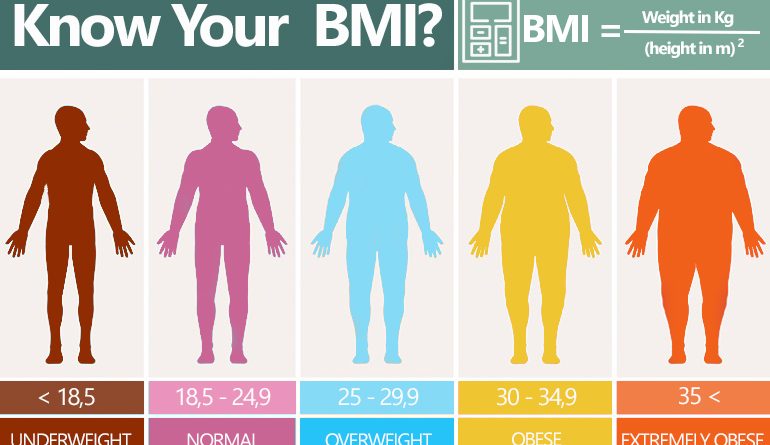How BMI Calculator Can Help Track Your Fitness Progress
BMI stands for Body Mass Index, and it is a numerical value that is calculated based on the height and weight of a person. It is commonly used by healthcare professionals as a measure of obesity and it is also used to help track weight loss progress.
The BMI calculator is a popular tool that can be used to track fitness progress. It is designed to help individuals assess their weight and determine their ideal body weight. The calculator is easy to use and can provide individuals with an accurate picture of their physical condition. In this article, we will examine the importance of using a BMI calculator to track your fitness progress.
Why Use a BMI Calculator?
Tracking your fitness progress is important for achieving your health goals. A BMI calculator can be a great tool for monitoring your progress as you work towards achieving your ideal weight. Here are some reasons why you should use a BMI calculator:
1. It Provides a Simple Way to Measure Progress
The BMI calculator takes into consideration your height and weight to provide a numerical value that can be used to assess your overall health. The calculator provides a simple and straightforward method for measuring your progress.
2. It Helps You Set Realistic Goals
Once you know your BMI, you can use the information to set realistic goals for yourself. You can determine your ideal body weight and set a goal to achieve it. This can help you stay motivated and on track with your fitness journey.
3. It Can Help You Determine if You are at Risk for Health Issues
A high BMI can be an indicator of potential health problems, such as heart disease, diabetes, and high blood pressure. By using a BMI calculator, you can determine if you are at risk for these issues and take steps to prevent them.
4. It Provides Objective Feedback
A BMI calculator provides objective feedback about your progress. It removes emotions and subjective opinions from the equation, allowing you to see your progress in a clear and unbiased way.
How to use a BMI Calculator?
Using a BMI calculator is simple. You will need to know your height and weight, and then enter the information into the calculator. Once you have entered the information, the calculator will provide you with a numerical value, which is your BMI.
There are two ways to calculate your BMI – metric and imperial. The metric system uses kilograms and centimeters, while the imperial system uses pounds and inches. Here’s how to calculate your BMI using both systems:
Metric System:
– Convert your weight to kilograms (1 pound = 0.45359237 kilograms)
– Convert your height to meters (1 inch = 0.0254 meters)
– Square your height (height x height)
– Divide your weight by your height squared
Imperial System:
– Multiply your weight by 703
– Divide your height by 12 and then square the result (height in inches / 12)^2
– Divide your weight by the result of step 2
Once you have your BMI number, you can use the following BMI categories to interpret your results:
– Underweight: BMI less than 18.5
– Normal weight: BMI between 18.5 and 24.9
– Overweight: BMI between 25.0 and 29.9
– Obese: BMI 30.0 or higher
Benefits of Measuring Your BMI
Measuring your BMI can provide numerous benefits when it comes to tracking your fitness progress. Here are some of the most notable benefits:
1. It Provides a Snapshot of Your Health
Your BMI can give you an idea of whether you are underweight, overweight, or within a healthy weight range. This can provide a snapshot of your overall health and help you identify areas that need improvement.
2. It Helps You Set Goals
By knowing your BMI, you can set realistic goals for yourself. This can help you stay motivated and on track with your fitness journey.
3. It Can Help You Manage Health Risks
Higher BMI values can be an indicator of potential health risks, particularly concerning heart disease and type 2 diabetes. By tracking your BMI, you can take steps to manage these risks and reduce your chances of developing serious health problems. This proactive approach can not only benefit your well-being but also contribute to more favorable health insurance outcomes.
4. It Provides Objective Feedback
Your BMI provides objective feedback about your progress. Unlike subjective feedback from friends or family members, your BMI is a clear, numerical value that can help you see how far you’ve come and how much work you still have left to do.
How to Improve Your BMI?
If your BMI is above the healthy range, there are several steps you can take to improve it. Here are some tips for improving your BMI:
1. Eat a Healthy Diet
Eating a healthy diet is essential for improving your BMI. Focus on eating a diet that is high in whole, unprocessed foods and low in sugar and refined carbohydrates.
2. Engage in Regular Exercise
Exercise is key to improving your BMI. Aim for at least 30 minutes of moderate exercise most days of the week. This can include activities such as walking, jogging, biking, or swimming.
3. Get Enough Sleep
Getting enough sleep is important for managing your BMI. Aim for 7-9 hours of sleep per night and create a consistent sleep schedule.
4. Reduce Stress
Stress can contribute to weight gain and a higher BMI. Find ways to manage stress, such as practicing yoga, meditation, or deep breathing exercises.
5. See a Healthcare Professional
If you are struggling to improve your BMI, a healthcare professional can help. They can provide personalized advice and support to help you achieve your health goals.
Conclusion
In conclusion, the BMI calculator can be a valuable tool for tracking your fitness progress. It provides a simple and objective way to measure your progress and can help you set realistic goals for yourself. By understanding your BMI, you can take steps to improve your health and reduce your risk of serious health problems. Start using a BMI calculator today to take control of your health and achieve your fitness goals.




